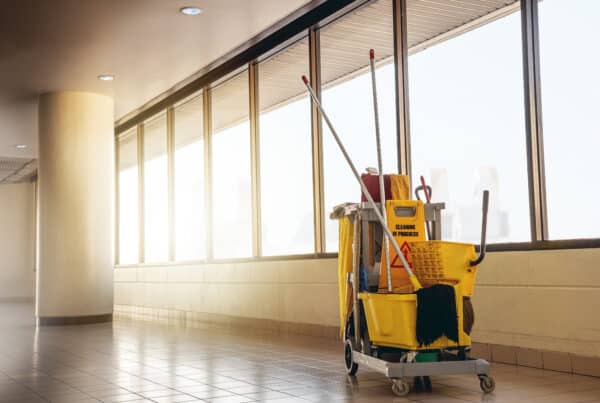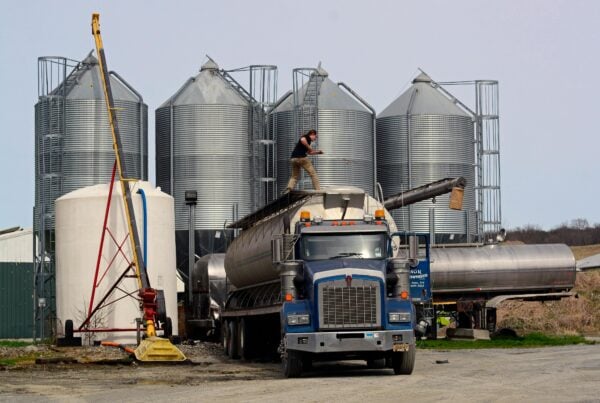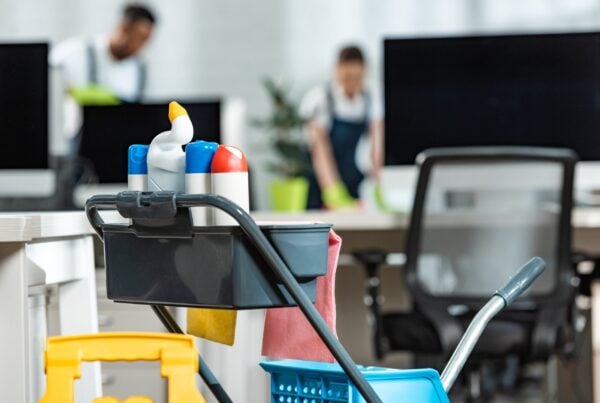Seniors Deserve the Best: Aged Care Cleaning Services Deliver
The provision of top-notch aged care cleaning services is a vital component of ensuring the health, safety, and well-being of our senior citizens. As the population ages and the demand for elderly care facilities continues to grow, the importance of maintaining pristine and hygienic environments cannot be overstated. In this article, we will delve into the crucial role that aged care cleaning services play in enhancing the quality of life for seniors.
The Importance of Cleanliness in Aged Care Facilities
Cleanliness plays a pivotal role in ensuring the well-being and quality of life for residents in aged care facilities. These environments are home to some of society’s most vulnerable individuals, and maintaining a high standard of cleanliness is essential for several reasons.
Aged care residents often have weakened immune systems and underlying health conditions, making them more susceptible to infections and illnesses. Regular and thorough professional cleaning helps control the spread of germs, reducing the risk of contagious diseases. Proper sanitation of communal areas, bedrooms, and bathrooms is crucial to safeguarding the health of residents and staff.
A clean and hygienic environment contributes to the comfort and dignity of residents. It enhances their sense of well-being and self-esteem. Clean living spaces, fresh linens, and well-maintained facilities create a more pleasant atmosphere, promoting a positive emotional state among residents.
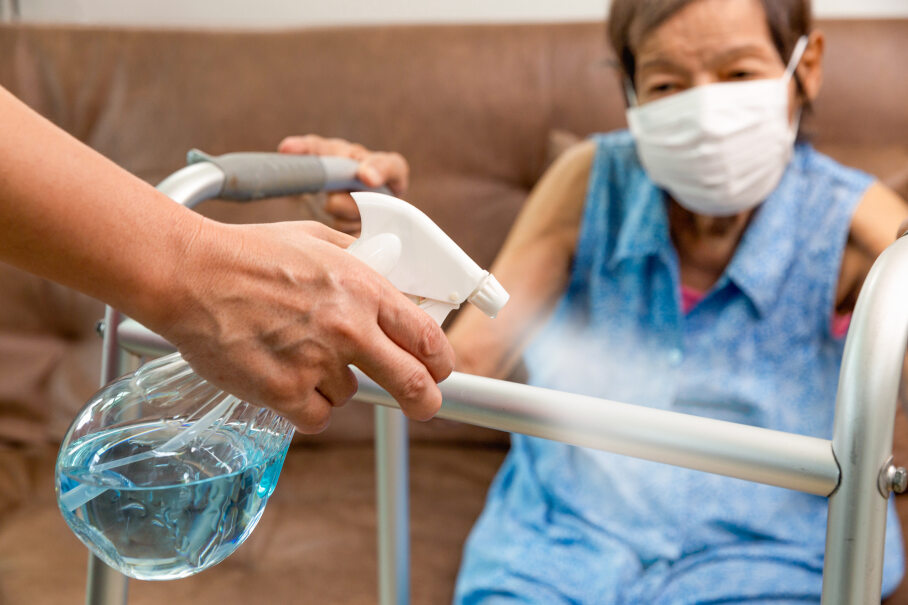
The Unique Needs of Aging Care Facilities
Aged care facilities are distinct in terms of the care they provide and the residents they serve. Seniors residing in these facilities often have compromised immune systems and may be more susceptible to infections and illnesses. Therefore, maintaining a clean and sanitized nursing home is of utmost importance. Here’s how age-care cleaning services address the unique needs of these facilities:
1. Infection Control
Aged care cleaning services are well-versed in infection control measures. They follow stringent protocols to prevent the spread of infections, including regular disinfection of high-touch surfaces and common areas.
2. Specialized Training
Commercial cleaning staff in aged care facilities undergo specialized training to understand the unique needs of seniors. This includes training on handling sensitive situations and respecting residents’ privacy and dignity.
3. Gentle Cleaning
Seniors may have delicate skin and respiratory issues. Aged care cleaning services use gentle, hypoallergenic cleaning products that are safe for seniors and do not exacerbate existing health conditions.
4. Comprehensive Aged care Cleaning Services
Aged care cleaning services provide comprehensive cleaning, ensuring that all areas, from resident rooms to communal spaces, are immaculate. This creates a comfortable and inviting living environment.
Aged care Cleaning Services Impact on Quality of Life
The quality of life for seniors in aged care facilities is greatly influenced by the cleanliness and hygiene of their surroundings. Here’s how age-care cleaning services contribute to an improved quality of life:
1. Health and Well-being
A clean and hygienic environment reduces the risk of infections and illnesses, promoting the overall health and well-being of residents. Seniors can enjoy their golden years without constant health concerns.
2. Peace of Mind
For both residents and their families, knowing that the facility is meticulously cleaned provides peace of mind. It eliminates worries about hygiene-related issues and allows seniors to focus on enjoying life.
3. Social Engagement
Clean and pleasant communal areas encourage social interaction among residents. Seniors can engage in activities and form meaningful connections with their peers, combating feelings of loneliness and isolation.
4. Dignity and Respect
Aged care cleaning services operate with a deep understanding of the need for dignity and respect in these facilities. Maintaining a clean and orderly environment upholds the dignity of residents.
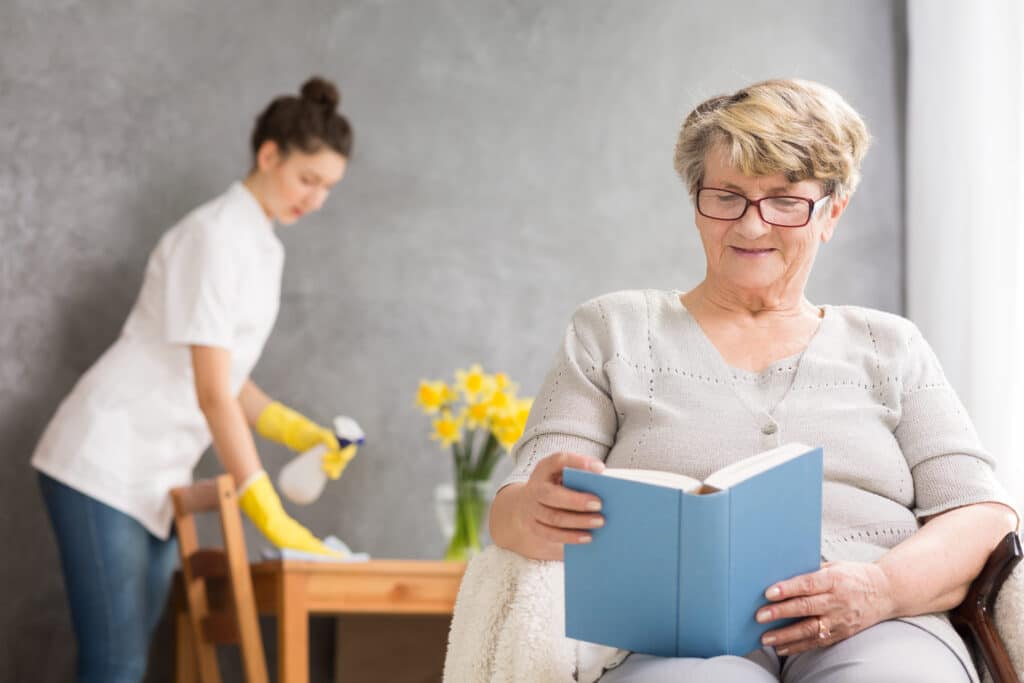
Staff Training and Sensitivity in Aged Care Cleaning
Comprehensive Training Programs
Training in Infection Control:
Aged care cleaning staff must undergo training in infection control protocols. They should be well-versed in techniques to prevent the spread of contagious diseases, especially in communal living environments.
Handling of Specialized Equipment:
Some elderly care facilities may require the use of specialized cleaning equipment. Proper training ensures that staff can safely and effectively operate these devices.
Understanding Dementia and Cognitive Conditions:
Facilities with residents experiencing dementia or cognitive impairments require cleaning staff who understand the unique challenges posed by these conditions. Training should include strategies for communicating with and assisting residents who may be confused or anxious.
Sensitivity to Residents’ Needs
Respect for Privacy:
Aged care cleaning staff should be sensitive to residents’ privacy and personal space. Knocking on doors before entering living areas and respecting residents’ requests for privacy are essential practices.
Cultural Awareness:
Sensitivity extends to recognizing and respecting cultural differences among residents. Understanding cultural practices related to cleanliness and hygiene is crucial.
Communication Skills:
Effective communication with residents is vital. Aged care cleaning staff should be trained to engage respectfully and empathetically with residents, especially when providing assistance with personal hygiene.
Emotional Support:
Aged care cleaning services may encounter residents who are feeling anxious, upset, or lonely. Sensitivity to residents’ emotional states and providing reassurance can make a significant difference in their well-being.
Flexibility and Adaptability:
Every resident is unique, and their needs can vary. Aged care cleaning services should be flexible and adaptable, tailoring their cleaning routines to accommodate residents’ preferences and schedules.
Infection Control and Health Standards in Aged Care Cleaning
Preventing the Spread of Infections
Rigorous Cleaning Protocols
Aged care cleaning staff must follow rigorous cleaning protocols to prevent the spread of infections. This includes thorough cleaning and disinfection of high-touch surfaces, such as doorknobs, handrails, and communal areas. Cleaning schedules should be established and strictly adhered to.
Hand Hygiene
Hand hygiene is a fundamental aspect of infection control. Aged care cleaning service staff, including professional cleaning personnel, must practice proper handwashing techniques regularly. Hand sanitization stations should be readily available throughout the facility.
Personal Protective Equipment (PPE)
Aged care cleaning service staff should be ready with appropriate personal protective equipment, including gloves and masks, when handling potentially contaminated materials or cleaning chemicals. This not only protects them but also prevents cross-contamination.
Health Standards and Compliance
Regulatory Guidelines
Aged care facilities are subject to strict regulatory guidelines regarding cleanliness and infection control. Compliance with these regulations is not only a legal requirement but also essential for the health and safety of residents. Routine inspections ensure that these standards are met.
Monitoring and Documentation
Proper monitoring and documentation of cleaning activities are crucial. Facilities should maintain records of cleaning schedules, disinfection processes, and the use of cleaning products. This documentation serves as evidence of compliance with health standards.
Resident Education
Residents should also be educated about infection control measures and their role in maintaining a clean and safe environment. This includes proper handwashing techniques and the importance of notifying professional cleaning staff if they experience symptoms of illness.
Preventing Healthcare-Associated Infections (HAIs)
Infection control measures in elderly care cleaning services are designed to prevent healthcare-associated infections (HAIs). HAIs can have serious consequences for elderly residents with compromised immune systems. Preventative measures include:
- Proper retirement facility cleaning and sterilization of medical equipment
- Regular professional cleaning and disinfection of resident rooms and bathrooms
- Monitoring for signs of infection among residents.
- Isolating residents with contagious illnesses to prevent the spread of infection
Outbreak Preparedness
Aged care facilities should have outbreak preparedness plans in place. These plans outline steps to be taken in the event of a contagious disease outbreak, including isolation protocols, thorough professional cleaning measures, and communication with health authorities.
Conclusion
In conclusion, aged care cleaning services are indispensable for the well-being and happiness of our senior citizens. These services go beyond mere commercial cleaning; they contribute to creating a safe, dignified, and enjoyable living environment for our beloved seniors.
SCS Group Integrated Services Stands As The Epitome Of Excellence In Aged Care Cleaning Services In Sydney
With an unwavering commitment to hygiene, health standards, and resident well-being, we have emerged as the trusted partner for aged care facilities across the city. Our dedicated aged care cleaning staff undergoes rigorous training in infection control and adheres to strict health standards to safeguard the vulnerable elderly population. We understand the unique nursing home cleaning needs of aged care facilities, from meticulous room cleaning to disinfection of high-touch surfaces. What sets us apart is our unwavering dedication to providing a clean and safe environment that contributes to the health and comfort of residents. When it comes to elderly care cleaning services, SCS Group Integrated Services is your assurance of unmatched quality, professionalism, and compassion.

